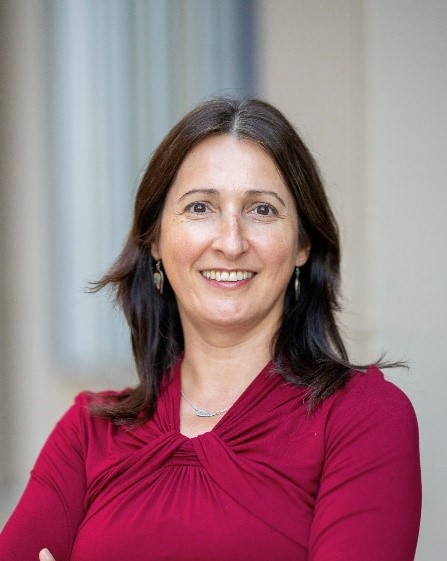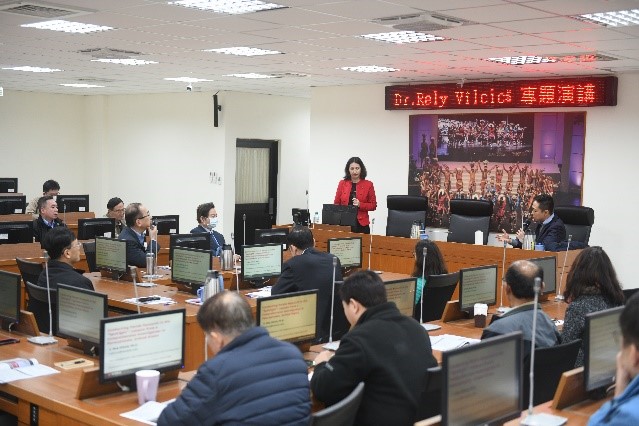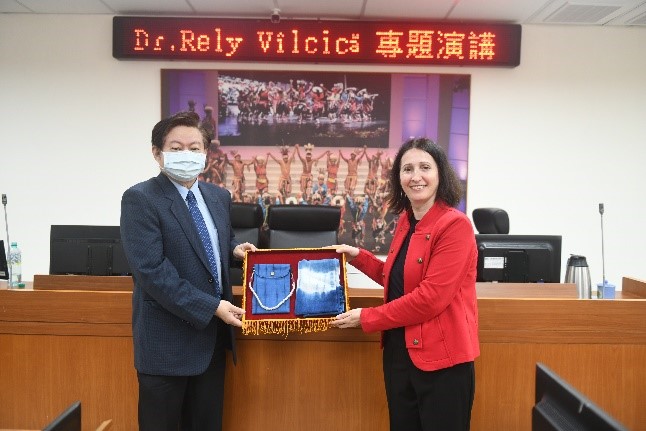Taiwan-U.S. Academic Exchange on Correctional Policies – Dr. Rely Vîlcică’s Visit to Taiwan
- Publication Date :
- Last updated:2025-03-31
- View count:521
To broaden staff members’ perspectives and incorporate global best practices into Taiwan’s correctional policies, the Agency of Corrections, Ministry of Justice, Taiwan (R.O.C.), invited Dr. Rely Vîlcică, Associate Professor in the Department of Criminal Justice at Temple University, to visit on March 18, 2025. During her visit, Dr. Vîlcică delivered a talk on issues related to the discretionary parole system in the United States, using Pennsylvania’s 2008-2010 parole moratorium as a case study to provide an in-depth analysis of the U.S. parole system.
Taiwan’s parole mechanism and policies have been greatly influenced by U.S. practices, and parole reform has recently become a key agenda item in the National Affairs Conference on Judicial Reform. Therefore, inviting an internationally renowned scholar to address parole-related issues was both timely and essential.
Dr. Vîlcică’s talk focused on Pennsylvania’s 2008-2010 parole moratorium, which was enacted after a parolee killed a police officer while under community supervision. This incident sparked widespread public concern over parole board decision-making and the effectiveness of correctional rehabilitation programs, ultimately prompting the then-governor to temporarily halt parole releases. Drawing from her experience as a researcher commissioned by the Pennsylvania state government to investigate the parole and correctional processes in place at that time, Dr. Vîlcică shared insights into the challenges encountered during that investigation and the key lessons learned.
Dr. Vîlcică emphasized the need for empirically-based decision-making tools that should be periodically evaluated for their predictive ability. She also noted that even best risk assessment tools are not 100% accurate in predicting recidivism, and she emphasized that, regardless of the reliability of risk assessment instruments, parole board members must uphold the principles of fairness, transparency, accountability, and impartiality when evaluating parole applications—all critical elements for maintaining the legitimacy of the correctional/parole system. She cautioned against overreacting to rare cases of violence committed by parolees, as doing so could undermine broader correctional rehabilitation efforts and jeopardize the rights of eligible parole candidates.
Dr. Vîlcică also highlighted the importance of effectively using the parole system to manage prison populations. By allowing low- and medium-risk incarcerated individuals to be reintegrated into society under minimum and moderate-intensity parole supervision, correctional institutions and parole supervision capacity can better allocate resources to high-risk individuals, thereby maximizing the effectiveness of correctional interventions both in institutional settings and during the parole community supervision.
During the Q&A session, Director-General Hui-Huang Chou of the Agency of Corrections sought Dr. Vîlcică’s perspective on life sentences without parole. In response, Dr. Vîlcică emphasized the importance of policies that offer all incarcerated individuals a sense of hope. She argued that a parole system offers hope for reintegration and serves as a crucial mechanism for rehabilitation. While acknowledging that parole is not a perfect system, she emphasized its core principle: providing incarcerated individuals with a structured pathway back to society. She encouraged correctional authorities to fully utilize parole as a reintegration tool that balances considerations for public safety and successful rehabilitation.
Dr. Vîlcică’s insightful lecture reinforced the Agency of Corrections’ commitment to a rehabilitative philosophy. Moving forward, the Agency will continue to refine and optimize the parole review process, ensuring that incarcerated individuals have the best opportunity for successful reintegration into society. This effort aligns with the Agency’s vision of “opening windows to the heart” and “unlocking doors of hope” for incarcerated individuals.





